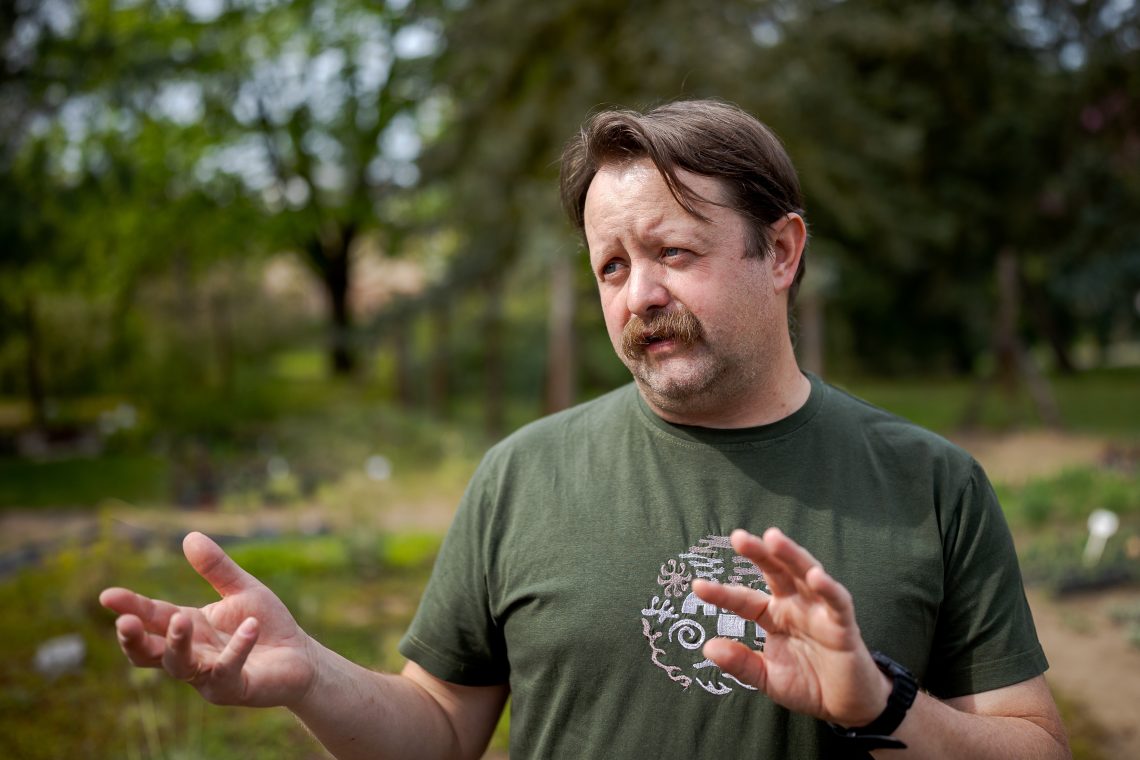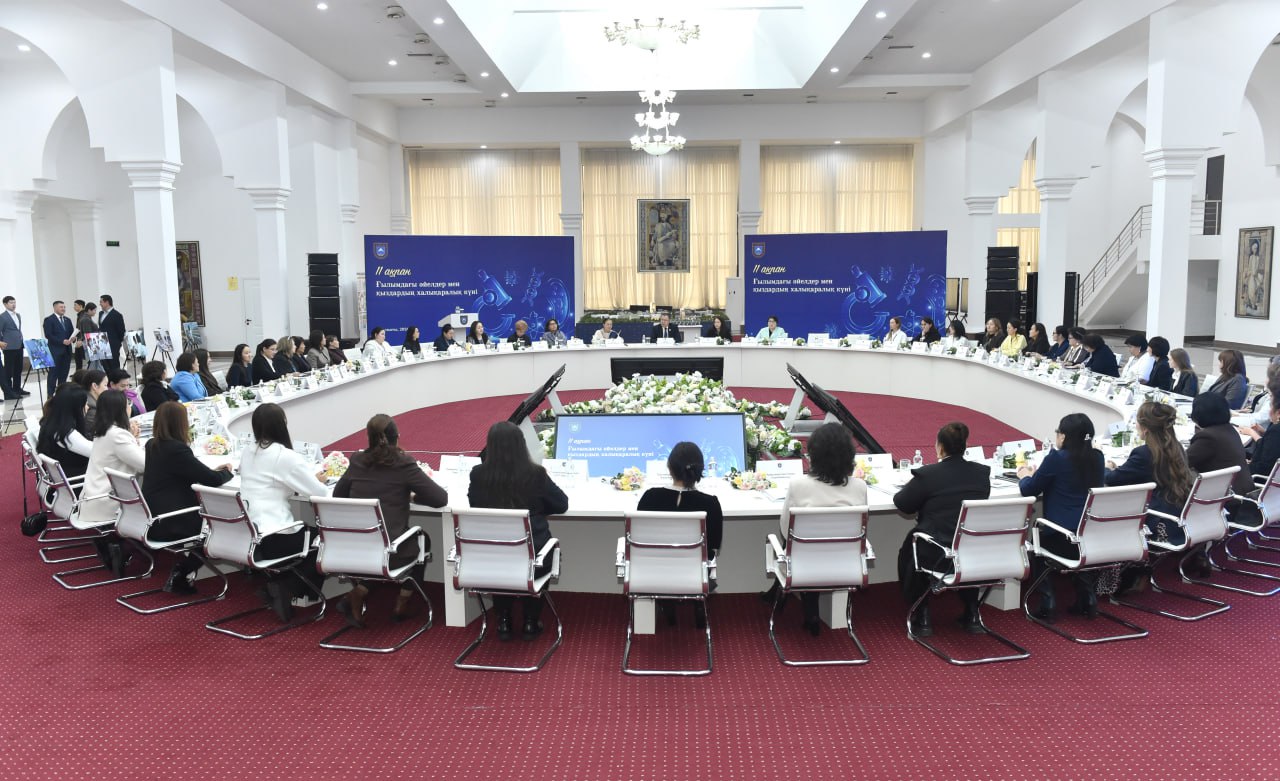- Main
- News
- ANNOUNCEMENT: Lecture, Seminar, and Practical Training Series Delivered by Professor Gábor Sramkó
ANNOUNCEMENT: Lecture, Seminar, and Practical Training Series Delivered by Professor Gábor Sramkó

The Faculty of Biology and Biotechnology of Al-Farabi Kazakh National University invites Bachelor’s students, Master’s students, PhD candidates, early-career researchers, and faculty members to take part in a unique series of classes led by Professor Gábor Sramkó (Gábor Sramkó)—one of Europe’s leading experts in molecular phylogenomics, plant systematics, and plant conservation.
Professor Sramkó is the head of the Evolutionary Genomics MTA-DE “Lendület” research group (University of Debrecen, Hungary), the author of more than 80 Scopus-indexed publications (h-index 24), and a long-standing partner and advisor to the Faculty’s PhD students.
The program includes:
-
lectures on molecular phylogeny, genomics, phylogeography, and the RADseq and Sanger sequencing methods;
-
training workshops in Linux/Bash, using Scopus and Web of Science, and genetic data analysis;
-
a field practicum on collecting plant specimens;
-
seminars on preparing publications and international research projects.
Dates: 21 November – 16 December 2025
Venues:
Room 1 (Zoology), Room 12 (Botany), Hall 214, and the Botanical Garden.
CLASS SCHEDULE
|
Date |
Type of activity |
Duration, hours |
Room |
Time |
|
21 November |
Lecture:«Introduction to Linux; the bash and its basic linguistics». Abstract:The Linux operating system, its capabilities and advantages for genetic research, what Bash is, and basic Linux commands will be covered. Training seminar: “Molecular phylogeny of plants in biogeography” |
2
2 |
1 zoo. |
10.00-12.00
14.00-16.00 |
|
22 November |
Lecture: “Introduction to Conservation Genetics and Genomics” Abstract: The use of genomic analysis to preserve population viability and biodiversity will be discussed. Genomic methods can be used to confirm species identity, degree of hybridization, genetic diversity, demographic history, and effective population size. Consultation for Master’s and PhD students: Key stages and requirements for preparing research results for publication. |
2
3 |
1 zoo. |
10.00-12.00
14:00-17:00 |
|
24 November |
Lecture: “Main methodological approaches in Conservation Genetics and Genomics” Abstract: How methods from ecology, molecular biology, population genetics, mathematical modelling, and evolutionary taxonomy (study of phylogenetic relationships) are combined in conservation genetics. Consultation for Master’s and PhD students: Preparing and writing scientific papers for journals recommended by the Ministry of Science and Higher Education of the Republic of Kazakhstan and/or international conference proceedings, as well as peer-reviewed international journals. |
2
2 |
1 zoo. |
10.00-12.00
14.00-16.00 |
|
25 November |
Consultation for Master’s and PhD students: |
3 |
1 zoo. |
10.00-13.00 |
|
26 November |
Training: |
2 |
12 bot. |
15.00-17.00 |
|
27 November |
Lecture: “Plant molecular taxonomy” |
2
2 |
214
Botanical Garden |
08.00-10.00
14.00-16.00 |
|
28 November |
Lecture: “Basic Methods in Molecular Ecology. DNA-fingerprinting” |
2 |
1 zoo. |
10.00-12.00 |
|
|
Consultation: |
3 |
|
14:00-17:00 |
|
29 November |
Lecture: “Sanger-sequencing method” Practical class: “Sanger-sequencing: is it worth using?” |
2
2 |
1 zoo. |
10.00-12.00
14.00-16.00 |
|
1 December |
Lecture: “The basis of phylogenetic inference” |
3 |
1 zoo. |
10.00-13.00 |
|
2 December |
Training: |
2 |
1 zoo. |
10.00-12.00 |
|
3 December |
Lecture: “Comparing DNA sequences: phylogenetic trees” Training seminar: |
2
2 |
1 zoo. |
10.00-12.00
14.00-16.00 |
|
4 December |
Training seminar: Consultation: |
2
2 |
1 zoo. |
10.00-12.00
14.00-16.00 |
|
5 December |
Joint workshop: |
4 |
1 zoo. |
10.00-14.00 |
|
6 December |
Consultation: |
3 |
1 zoo. |
10.00-13.00 |
|
8 December |
Training: |
2 |
1 zoo. |
10.00-12.00 |
|
9 December |
Lecture: “Molecular Ecology in the genomic era” Consultation: |
3
2 |
1 zoo. |
10.00-13.00
14.00-16.00 |
|
10 December |
Lecture: “Phylogeography: the genetic analysis of the area”
Consultation:
|
2
3 |
1 zoo. |
10.00-12.00
14:00-17:00 |
|
|
Ethical principles and norms of scientific publishing; dishonest practices in modern publishing. |
|
|
|
|
11 December |
Lecture: “RADseq in practice” Training: |
2
2 |
1 zoo. |
10.00-12.00
14:00-16:00 |
|
12 December |
Lecture: “RADseq in Conservation Genetics” |
3 |
1 zoo. |
10.00-13.00 |
|
15 December |
Consultation: |
2 |
1 zoo. |
10.00-12.00 |
Department of Botany and Agroecology
Other news


